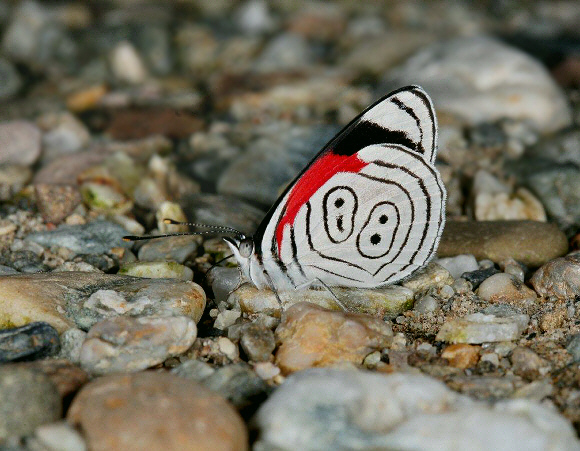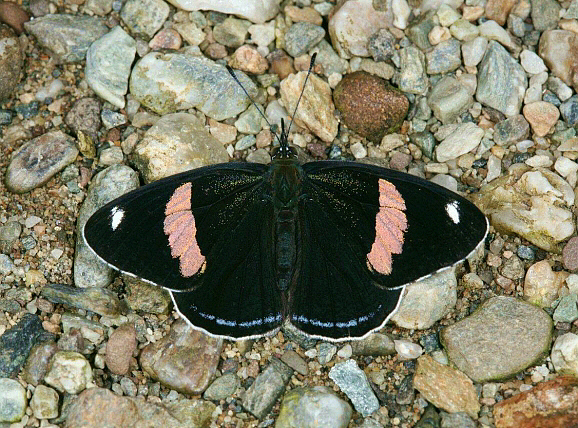
Introduction
The 89 or 88 numerals which appear on the underside hindwings of anna are present in all Diaethria species but vary in colour, thickness and shape. In clymena for example the lines are thick and the markings form an ’88’ figure, whereas in others such as anna they are much thinner.
All Diaethria butterflies are confined to the neotropical region – there are 3 species found in Mexico, while the remainder are Amazonian or Andean.
The upperside of anna and most other Diaethria species are blackish, marked on the forewings with a diagonal band, usually in metallic blue or green. In some forms of anna these bands reflect pastel pink tones under certain lighting conditions.
Diaethria anna is found from Costa Rica to Mexico, and as a rare stray in Texas.

Habitats
This species is found in wet tropical forests at elevations between about 200-1200m.
Lifecycle
The eggs, in common with those of other Diaethria species, are whitish, and laid singly on the leaves of the foodplant. The caterpillar when fully grown is green, with a double row of pale spots along the back. The head is adorned with a pair of very long whorled spines. The larval foodplant is Trema (Ulmaceae). The chrysalis projects horizontally, attached by the cremaster from a stem. It is green, with white dots on the back.
Adult behaviour
As with all Diaethria species the males are strongly attracted to urine-soaked sand, and also imbibe dissolved minerals from damp soil, road surfaces and rock faces. They are very active butterflies, easily disturbed, and rarely settle for more than a few seconds at a time in one spot, although they will return repeatedly to the same patch of ground. They are usually seen in two’s or three’s, but sometimes congregate in large numbers at favoured spots.
